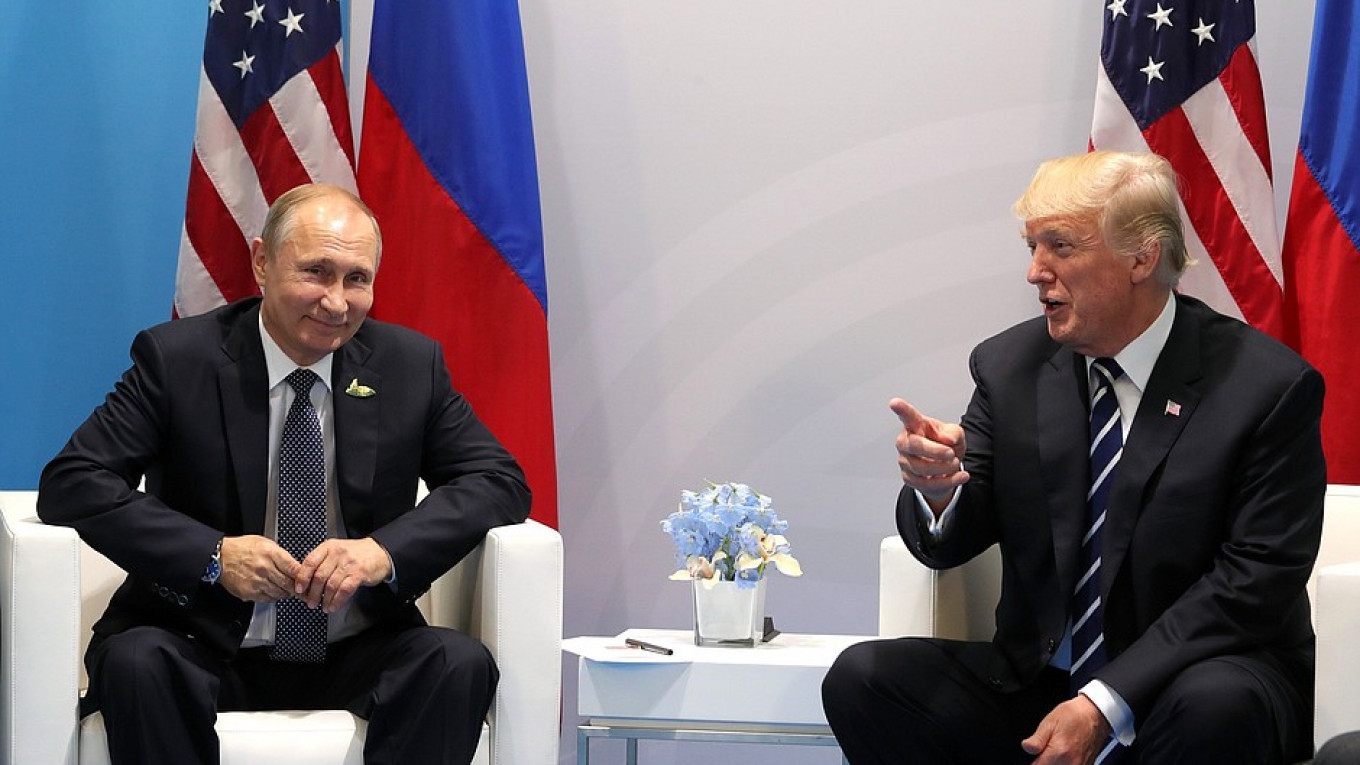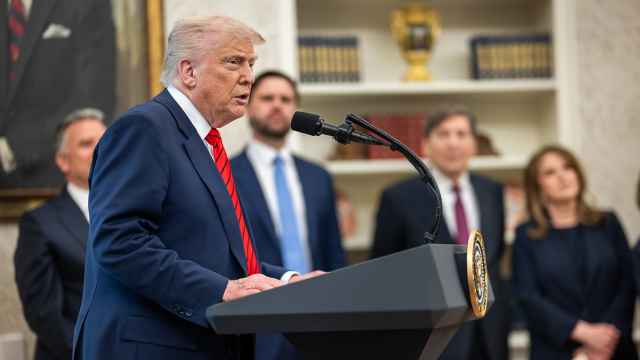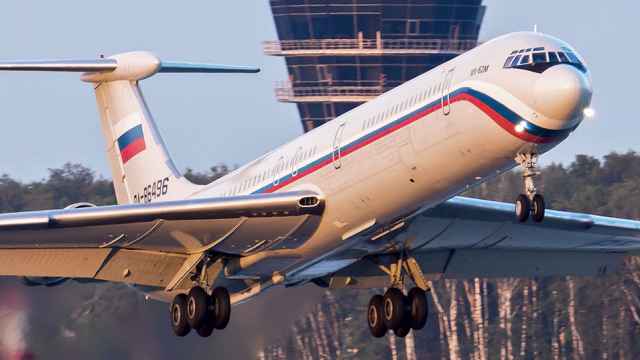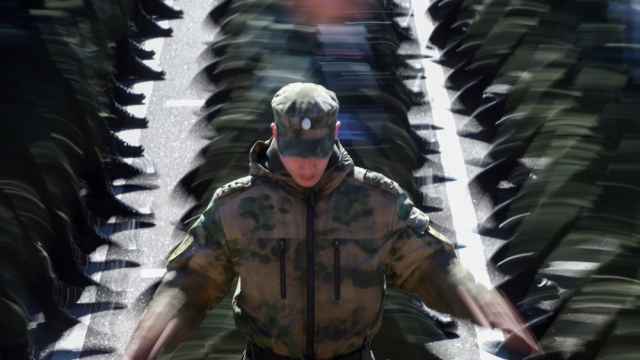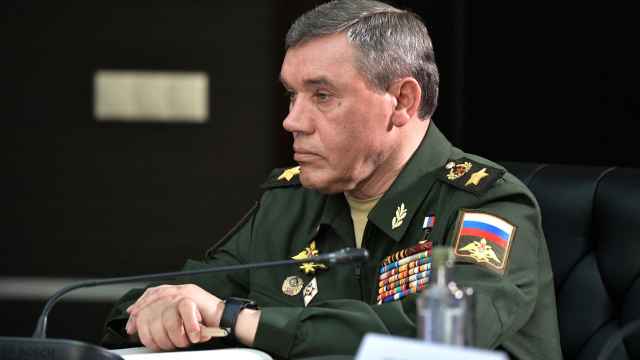The Open Skies Treaty, which the United States plans to quit, was agreed just after the Cold War to allow signatories to avoid nasty surprises by monitoring rival militaries.
It was signed in 1992 and came into force in 2002, allowing 35 countries — including the United States and Russia — to fly unarmed surveillance flights over each other's territory.
Moscow and Washington have long accused the other of breaching its terms, and last year President Donald Trump suggested that the United States might leave the treaty altogether.
That threat now seems likely to come to fruition, despite the dismay of Washington's European allies, who remain attached to the treaty as part of their continent's security architecture.
NATO Secretary-General Jens Stoltenberg has repeatedly argued for the preservation of the treaty, a NATO diplomat said on Friday.
But since Trump's previous decision to leave the Intermediate-Range Nuclear Forces Treaty on medium-range land missiles with Moscow, the Open Skies agreement has been on borrowed time.
U.S. Secretary of State Mike Pompeo announced on Thursday that a decision had now been made.
"Russia has grossly and continuously violated the treaty in various ways for years," he said, citing several examples.
"Moscow appears to use Open Skies imagery in support of an aggressive new Russian doctrine of targeting critical infrastructure in the United States and Europe with precision-guided conventional munitions," Pompeo said.
"Russia has... weaponized the treaty by making it into a tool of intimidation and threat," he said, complaining that Russia prevents U.S. flights over the militarized Kaliningrad enclave.
Observation
The treaty makes it possible to conduct joint unarmed observation flights over the territories and to take images using sensors of a predefined resolution.
And it also allows all signatories to request copies of all images taken during overflights carried out by others.
Overflights are governed by quotas, negotiated annually and assigned to specific aircraft. The United States, for example, is allowed to operate Boeing OC-135 planes with infrared scanners.
The country under surveillance is given 72 hours' warning of a flight and 24 hours notice of the route, to which it can suggest modifications.
The treaty lays down which air bases can be used for the flights and at which points they can cross into each other's air space. Russia and the U.S. have four such bases each.
A committee to oversee the implementation of the treaty meets in Vienna every month at the headquarters of the Organisation of Security and Cooperation (OSCE) in Europe.
"Its unique feature consists in the fact that during overflights, representatives of both the observing state and the observed state can sit together in one aircraft," said Alexander Grief and Moritz Kutt, researchers at the Institute for Peace Research and Security Policy in Hamburg, in a report published in April.
"U.S. withdrawal would endanger the future of the Open Skies Treaty," they say.
"The United States would forego an important confidence-building instrument in its relations with Russia.
"European allies would, in addition, lose important intelligence, since most of them do not possess reconnaissance satellites.
"Hence, a withdrawal would not only negatively affect the United States, but also its NATO allies and ultimately all remaining member states."
The 35 signatories are Belarus, Belgium, Bosnia and Herzegovina, Bulgaria, Canada, Croatia, Czech Republic, Denmark, Estonia, Finland, France, Georgia, Germany, Greece, Hungary, Iceland, Italy, Latvia, Lithuania, Luxembourg, Netherlands, Norway, Poland, Portugal, Romania, Russia, Slovakia, Slovenia, Spain, Sweden, Turkey, Ukraine, United Kingdom, and United States. Kyrgyzstan has signed, but not ratified the treaty.
A Message from The Moscow Times:
Dear readers,
We are facing unprecedented challenges. Russia's Prosecutor General's Office has designated The Moscow Times as an "undesirable" organization, criminalizing our work and putting our staff at risk of prosecution. This follows our earlier unjust labeling as a "foreign agent."
These actions are direct attempts to silence independent journalism in Russia. The authorities claim our work "discredits the decisions of the Russian leadership." We see things differently: we strive to provide accurate, unbiased reporting on Russia.
We, the journalists of The Moscow Times, refuse to be silenced. But to continue our work, we need your help.
Your support, no matter how small, makes a world of difference. If you can, please support us monthly starting from just $2. It's quick to set up, and every contribution makes a significant impact.
By supporting The Moscow Times, you're defending open, independent journalism in the face of repression. Thank you for standing with us.
Remind me later.


